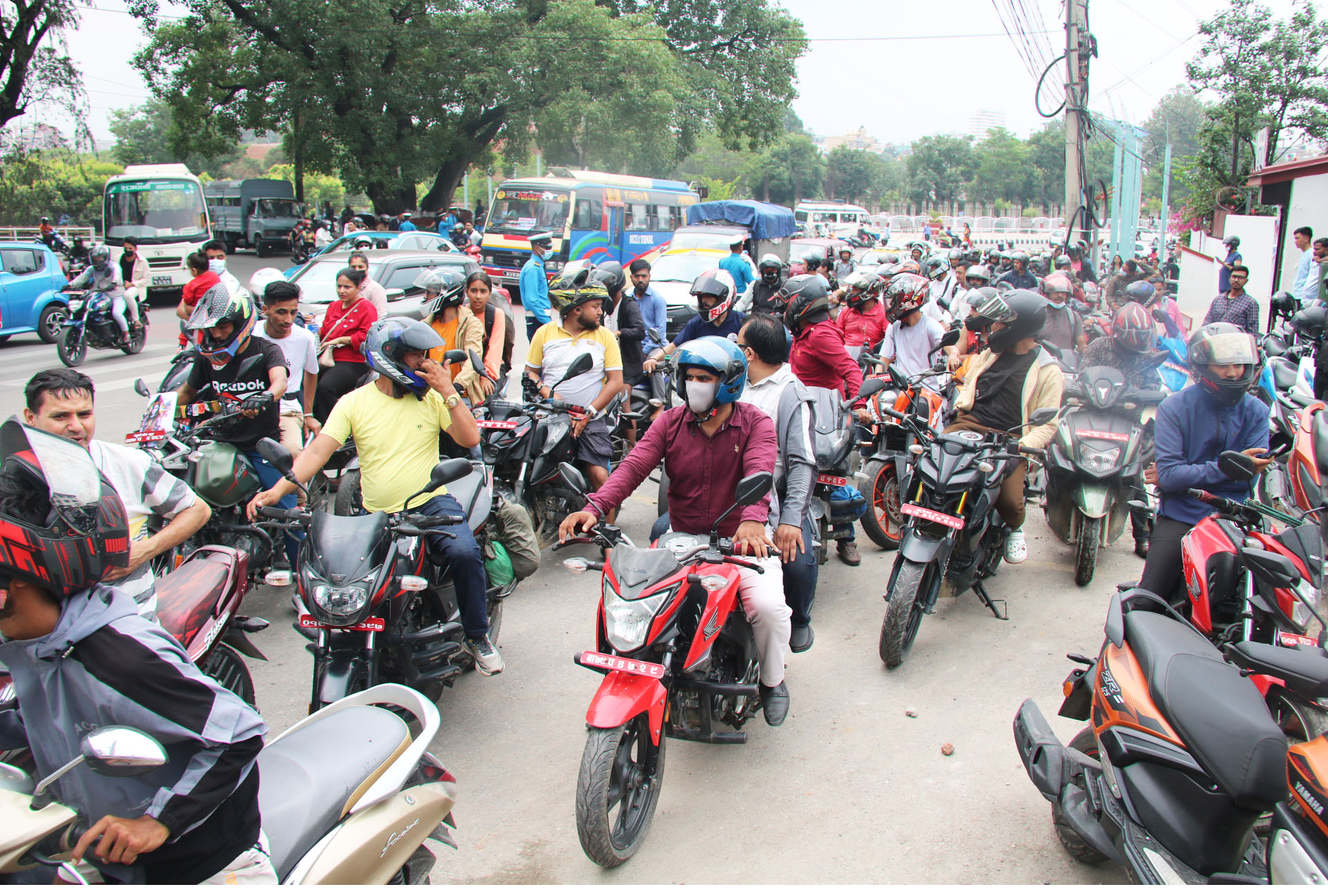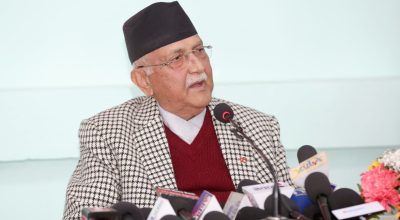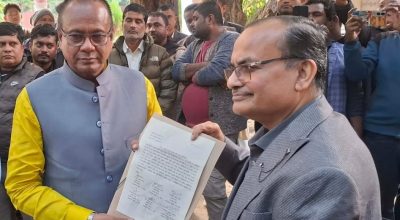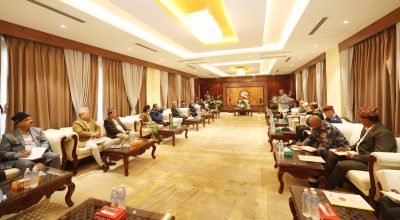
Kathmandu, June 17: Supplies of petroleum products in the Kathmandu Valley have been hampered due to the protest of the Nepal Petroleum Tanker Drivers Association.
The Association has launched a strike, putting forth a seven-point demand.
According to Nepal Oil Corporation (NOC) executive director Dr Chandika Prasad Bhatta, it is in touch with the agitating side and a conclusion is expected by tonight. The dialogue between the two sides has been scheduled today at the Ministry of Industry, Commerce and Supplies, it is said.
As the Association said, tanker drivers have been denied the required facilities for a long and their frequent calls towards that end have remained unaddressed, forcing them to launch the strike. Appointment letters as ensured by the Labour Act, remunerations as fixed by the government, risk allowance, safety alert training in every three months, and their involvement in the social security fund are among the demands put forth by the Association.
The Association said it had, on June 11, sent its appeal to the NOC, warning of the protest programmes if the demands were not addressed by the next few days.
However, the Essential Commodities Control (Authorization) Act, 2017 (1961), has identified petroleum products as essential commodities, prohibiting the obstruction of their supplies meant for general use.
NC demands immediate solution to halt in supply of petroleum products
Meanwhile, the main opposition Nepali Congress Party has drawn the attention of the government on the issues of ongoing protest in petroleum products supplies.
The party has stated that the halt in the services has suspended the basic and fundamental rights of consumers. The NC’s Supplies and Consumer Department, issuing a press release today, stated that the halt in the petroleum products has created shortage thereby creating unnecessary panic situation to the consumers.
The department chief Guru Baral urged the government to initiate to resolve the issues through immediate talks with stakeholders. “Such kind of shortage will certainly affect the smooth supplies of goods in daily lives and directly affect the common people therefore it should be ended soon,” Baral said.
















